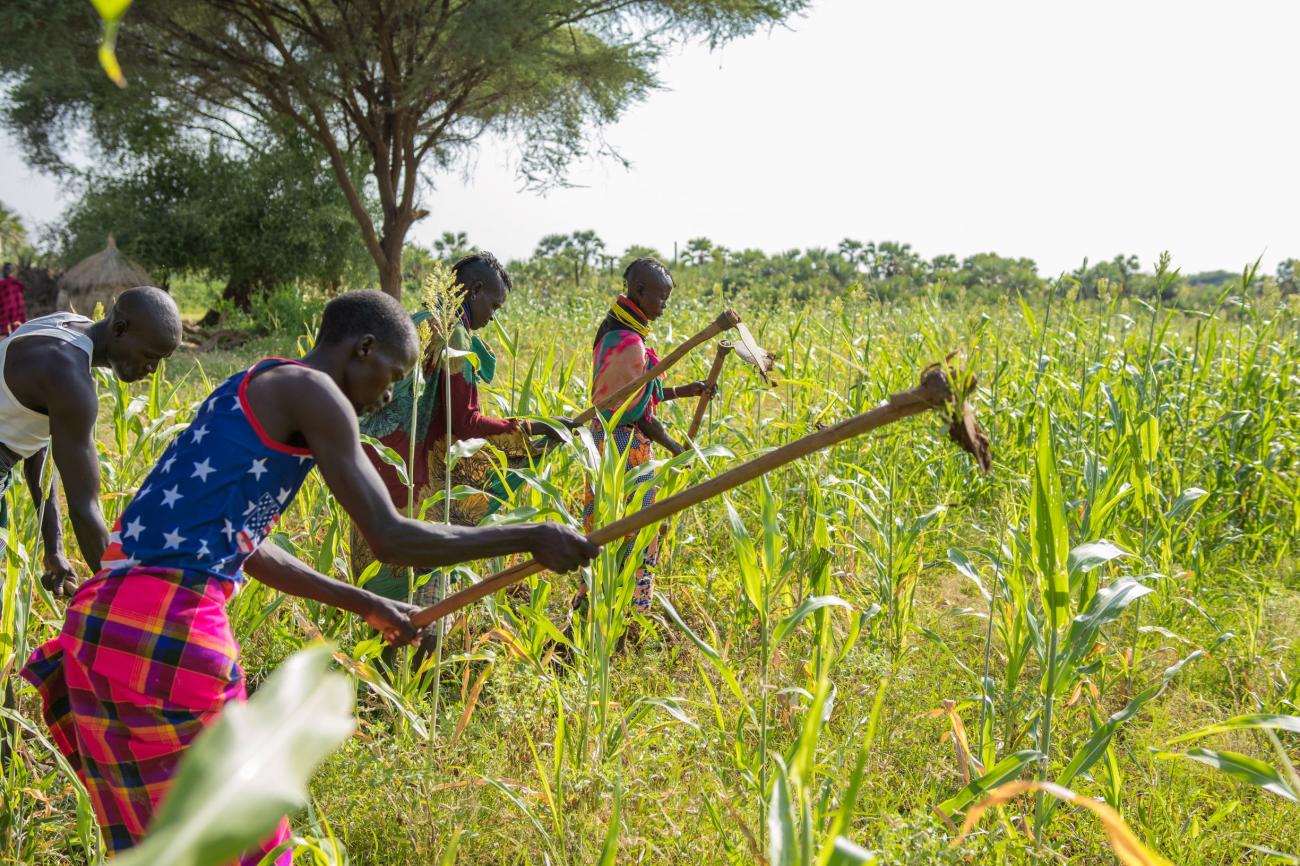Why Transforming Food Systems is Key to Achieving Sustainable Development

The Food Systems Summit will launch bold new actions, solutions and strategies to deliver progress on all 17SDGs, each of which relies on healthier food systems
The UN Secretary-General Antonio Guterres will convene a Food Systems Summit in September 2021, to launch bold new actions to transform the way the world produces and consumes food. This is in a bid to sustainably recover the world’s food system in which approximately 1 in 10 people do not have enough to eat and 3 billion cannot afford a healthy diet. This is also coupled with the realization that the Global food production contributes to 21-37% of global greenhouse gas emissions, exacerbating climate change. Guterres warns that unless immediate action is taken, we could be facing an impending food emergency as we are also off track with all the Sustainable Development Goals that relate to food systems – especially in ending poverty and hunger and action on the climate and environment.
The UN Food Systems Summit will serve as a turning point in the world’s journey to achieve all the SDGs. Scientists agree that transforming our food systems is among the most powerful ways to change course and realize the vision of the 2030 Agenda. Rebuilding the food systems of the world will also enable us to answer the UN Secretary-General’s call to “build back better” from COVID-19. We are all part of the food system, and so we all must come together to bring about the transformation that the world needs.
The Secretary-General’s Special Envoy for the UN Food Systems Summit, Dr. Agnes Kalibata outlined the main objectives of the summit as ensuring safe and nutritious food for all; shifting to sustainable consumption patterns; boosting nature-positive production at sufficient scale; advancing equitable livelihoods and value distribution; and building resilience to vulnerabilities, shocks and stresses.
"We are going to pool all the information, evidence, and ideas we receive, and create a vision for a future food system that benefits all" said Dr. Kalibata
Noting that the food systems are very local and vary from country to country, several food system summits will be held ahead of the major summit in September. Participants, including experts such as farmers, indigenous peoples and academics, will explore ways to make food systems more resilient to vulnerabilities and shocks, including those linked to climate change.
“We want to use the Summit to galvanise and engage people, raising awareness about the elements that are broken, and what we need to change; to recognize that we’re way off track with the SDGs, and raise our ambitions; and to secure firm commitments to actions that will transform our current food systems for the better” added Dr. Kalibata
In Kenya, the Foo d Systems Summit will be an opportunity to elevate and deliver on the systemic challenges facing the production, transformation (processing, transportation, storage etc.) and consumption of food.
The Kenyan economy has experienced resilient growth over the past decade and a half. However, poverty and food insecurity persist, exacerbated by climate change, recurrent shocks and developing rural infrastructure and market connectivity that continue to have a negative impact on agricultural production, livelihoods and economic growth. Urbanisation and rapid population growth leading to a large and youthful workforce, and technological advances are also changing the demands and opportunities for food systems.
Kenya’s foundations and commitment to transforming food systems are strong: Vision 2030 sets the agenda for inclusive growth and people-driven sustainable development. The Government’s Big Four Agenda places food and nutrition security for all Kenyans as a national priority. And the Agricultural Sector Transformation and Growth Strategy presents the GoK’s commitment to reforming the sector by increasing output and productivity, boosting incomes in agribusiness and ensuring household resilience and food security.
The One-UN SDG Partnership Platform, co-created with the Government of Kenya and launched at the UNGA in Sept 2017, also includes a Food & Nutrition Security window led by Rome-based UN agencies with the Government of Kenya.
Moreover, Kenya is hosting the UN Special Envoy’s Office and Secretariat of the FSS. Strong participation in the FSS will cement Kenya’s position as a leader on transformative food systems in the region and beyond.
Country Level Food Systems Dialogues
The preparatory process for the Summit includes several complementary workstreams that ensure a strong interface between science, policy and implementation. Noting that food systems and their challenges vary by location, the national Food Systems Dialogues are a critical component of the Summit as they encourage analysis, exploration and solutions that are context specific. The Dialogues are led by each Member State (with the possibility for complementary independent dialogues). Led by a national Convenor, the Country Level Food Systems Dialogues (CLFSD) will engage a broad range of stakeholders at both national and sub-national levels. In the Kenya context, dialogues could involve national, county and sub-county level stakeholders.




